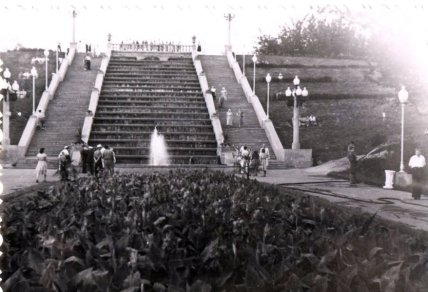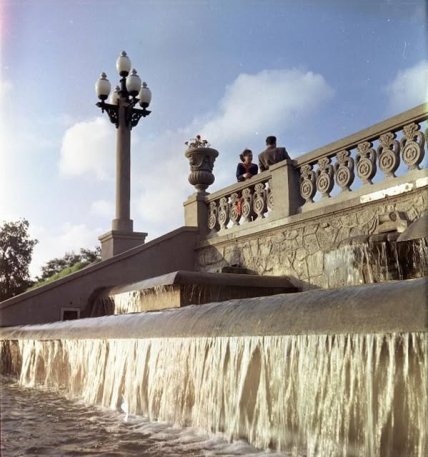The "Cascade" in Kharkiv no longer resembles a waterfall: here's how it looked in the past.
Over time, the appearance of cities inevitably changes. Old buildings and structures give way to new ones, and along with them, a piece of history that shaped the unique atmosphere of each city disappears.
Previously, we shared the sad story of the lost Grand Hotel in Kharkiv, which was destroyed by war. Now, we invite you to learn about another iconic site — the "Cascade" fountain, which for many years was an important part of the city's landscape, but has now practically ceased to exist.
The "Cascade" fountain was established in 1955 on the site of the destroyed pre-war stairs between Shevchenko Park and the adjacent street. Its construction was timed to coincide with the 300th anniversary of Kharkiv. The architectural project was designed by A. S. Mayak, while engineering works were carried out by F. Savuskan. The construction of this unique structure posed a significant challenge for the builders: restoring the stairs proved impossible due to their dilapidated condition. Thus, it was decided to create an entirely new architectural object — a cascade of waterfalls connecting the upper and lower platforms.
 5
5  6
6 It is believed that the Kharkiv "Cascade" became a sort of "younger brother" to the famous St. Petersburg cascade, the idea of which was brought from France by Peter I. There was even a legend that the "Cascade" in Kharkiv was built as an exact astronomical object: supposedly, on April 22, Lenin's birthday, the sun rises strictly along its axis. However, local historians assert that this is merely a myth.
 7
7 After another renovation in 2004, the "Cascade" once again became one of the most attractive spots in Kharkiv. Its upper platform offered a magnificent view of Shevchenko Park and the city streets. The area around the fountain was adorned with flowerbeds, benches, and lighting, which looked particularly impressive in the evening and at night, creating the illusion of a real waterfall amidst the urban hustle.
 8
8  9
9  0
0 Unfortunately, the future of the "Cascade" turned out to be tragic. In 2016, city authorities announced plans for its reconstruction, promising to preserve its uniqueness and transform it into a modern garden with recreation areas. However, by 2019, the concept had changed. It was decided to make the stairs granite, excluding water from the project, citing technical difficulties: the "Cascade" supposedly would not withstand vibrations from the subway and soil instability. Keeping the fountain was also deemed economically unfeasible due to the high costs of water.
 1
1 Today, the "Cascade" with water exists only in memories and old photographs.